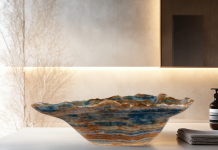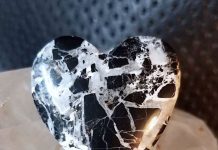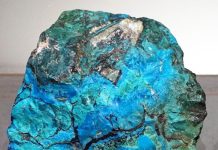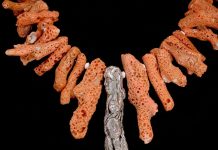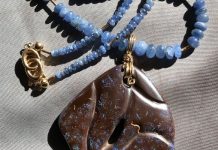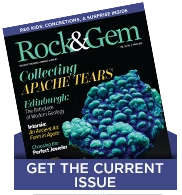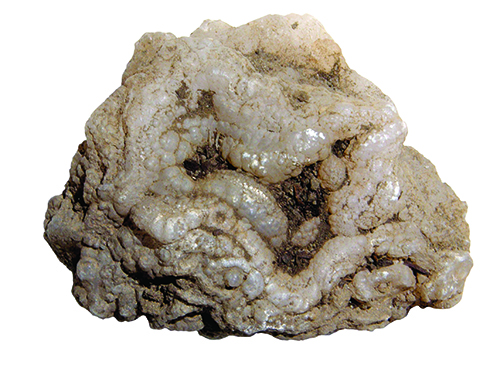
By Jim Brace-Thompson
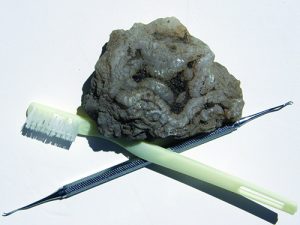
Do you have specimens like desert roses, quartz crystal clusters, or geode halves that sat for eons in the open before being collected? If so, those specimens probably have baked-in dirt, grime, desert varnish, or encrustations from moss and lichens. Scrub as much as you may with a toothbrush and pick away with a dental pick, yet grime remains lodged within cracks and crevices of mineral and crystal structures. What to do?
A friend suggested a sure-fire way to clean specimens such as chalcedony desert roses with baked-in grime: soak them in a solution of diluted muriatic acid. Muriatic acid is sold with swimming pool supplies in hardware stores. It is used by rockhounds who dilute it with three parts water to one part acid to dissolve calcium or organics encrustations such as lichens. However, acids are dangerous to work with and to dispose of and thus are not especially recommended. Again, what to do?
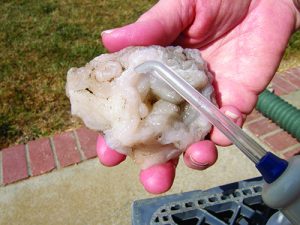
Another friend suggested a much safer and more earth-friendly method of cleaning chalcedony desert roses and minerals with sturdy crystal structures. Start by soaking your specimen overnight in water and detergent, such as dishwashing liquid. Then use a dental water flosser or oral irrigator. Almost instantly, baked-in dirt and grime will disappear.
This suggestion is a messy process. It’s best done outdoors, and you may want to don a rain slicker and goggles, if not a snorkel! Water will splash all over, but it will get the job done. Only do this with rocks and crystals that are sturdy and won’t dissolve in water or be dislodged by the flosser’s shooting spray.
The result will be a clean and beautiful specimen.
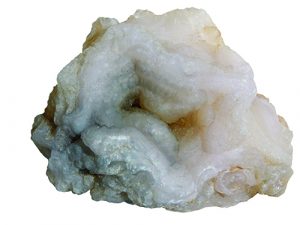
Author: Jim Brace-Thompson
 Jim began and oversees the AFMS Badge Program for kids, has been inducted into the National Rockhound & Lapidary Hall of Fame within their Education Category, and is the president-elect for the American Federation of Mineralogical Societies, www.amfed.org.
Jim began and oversees the AFMS Badge Program for kids, has been inducted into the National Rockhound & Lapidary Hall of Fame within their Education Category, and is the president-elect for the American Federation of Mineralogical Societies, www.amfed.org.
Contact him at jbraceth@roadrunner.com.


